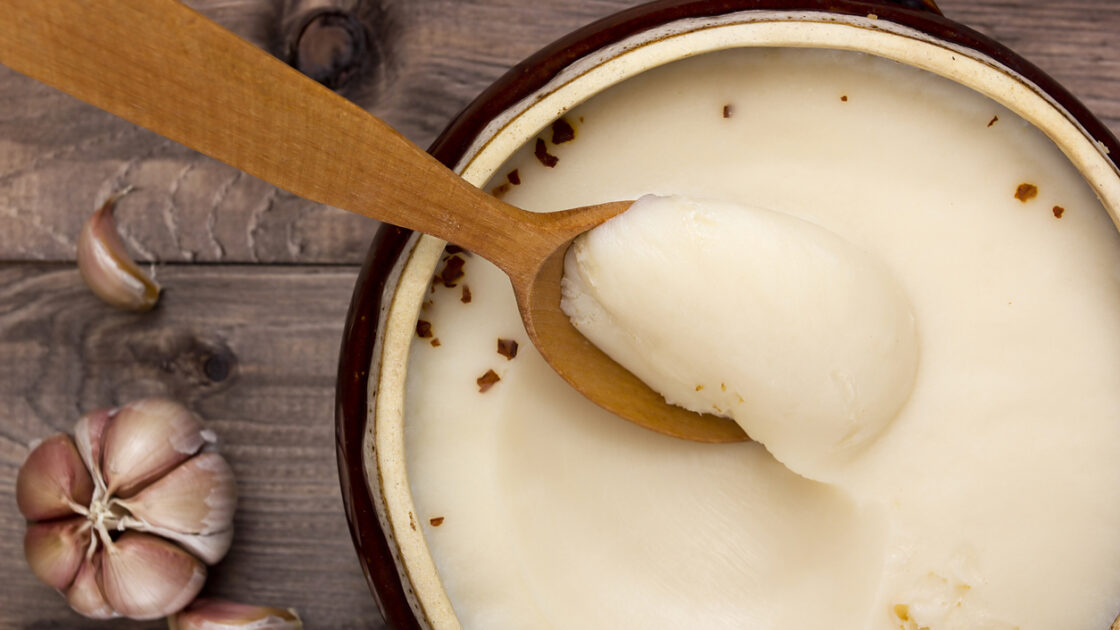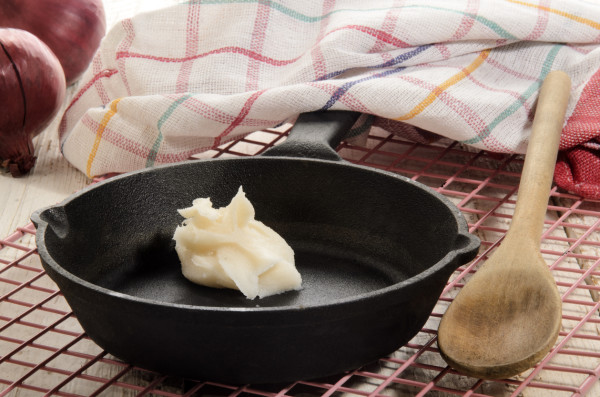Is It Time to Bring Animal Fats Back Into Your Kitchen?

It used to be that folks were told to stay away from animal fats at all costs: butter? That’ll hike up your cholesterol. Lard? Not if you want to live past 50. Luckily, research has caught up with the pseudoscience that once claimed that animal fats were bad for your heart, and the facts are in: ghee, tallow, and lard are actually good for you – that is, if you know how to buy and use them.
In Defense of Animal Fats
In 1978, Ancel Keys published the Seven Countries Study, which seemed to prove that saturated fats were linked to heart disease. This study was flawed in more ways than one, the largest of which was that while Keys included data from seven countries, he ignored data from sixteen others that would have disproven his point.
A large number of studies have since contradicted Keys’ conclusions, to such an extent that in 2016, Time Magazine published an exposé, specifically with regards to butter, that pointed to an overarching idea that the low-fat diet trend was misguided and paved the way for the increased popularity of butter, ghee, and rendered animal fats.
Animal fats, explains Dr. Mark Hyman, author of the new New York Times bestseller “Food: What the Heck Should I Eat?” are “good for you, despite what years of flawed science and nutritional guidelines told us.”
“We were told that margarine, Crisco vegetable shortening, and fake-butter spreads were better for us that butter and lard,” he says. “But this was bad advice. It turns out they are far more toxic than the saturated fats they were meant to replace.”
So forget what you’ve heard about animal fats: it’s time to start from scratch.
How to Choose Animal Fats
The most important element of cooking with animal fats is choosing good quality ones: just like poor-quality, conventionally-raised meat is bad for your health, so too are poor-quality fats – perhaps even more than with meat.
The reason for this is simple: when we tout the health benefits of grass-fed meat and dairy, our focus is on the improved ratio of omega-3s to -6s, the presence of CLA, and improved vitamin and mineral content. All of these nutritional elements are contained within the fat, so isolating the fat makes them all the more prominent.
“When you choose grass-fed and organic animal fats, you get a lot more of vitamins, minerals, healthy fats and antioxidants that these meats and fats contain,” explains Hyman.
He notes that whenever possible, the best fats come from animals that have been raised organically, on-pasture, and without the use of antibiotics or hormones.
How to Use Animal Fats
Just because animal fats are good for you doesn’t mean you need to dump your olive and coconut oil – but it does mean that you now have a fat you can rely on for higher heats.
Hyman recommends using the following fats for cooking:
- Organic avocado oil
- Butter from pastured, grass-fed cows or goats
- Grass-fed ghee
- Organic virgin coconut oil
- Organic, humanely-raised tallow, lard, or chicken fat
“At high temperatures, animal fats such as lard or tallow (beef fat) are good choices because they are less sensitive than other oils and fats,” he says, noting, however, that extremely high-heat cooking like deep-frying can change the structure of any fat, leading it to become toxic.
For cold preparations, meanwhile, Hyman recommends the following oils, which are less stable at high heats:
- Organic extra-virgin olive oil
- Walnut oil
- Almond oil
- Macadamia oil
- Sesame seed oil
- Tahini
- Flax oil
- Hemp
Just because you can use animal fats in high-heat cooking, however, doesn’t mean that’s the only way to reap their benefits. Chicken or duck fats can be used in a delicious vinaigrette, and lard is the time-honored classic for perfect pie crusts.
Our Top Animal Fat Picks
If you’re looking for sustainable, pasture-raised animal fats, here are some of our top picks on the market today.

1. Fatworks
Fatworks is a company devoted to fat – in fact, the company has branded itself “The Fattitude Adjusters.” Selling not just familiar fats like beef tallow, ghee, lard, and chicken fat, Fatworks has expanded its horizons to include goat’s milk ghee and wild boar tallow.
“Each animal definitely has its own distinct flavor,” says founder David Cole. “People who really like cooking really like our fats, because all of a sudden they have this whole palate of cooking oils with different flavors that they can use.”
For Cole, it is essential that the fats be of high quality; that’s why Fatworks works exclusively with small family farmers who have signed affidavits attesting to their sustainable practices.
“We have really high standards for who we source from,” says Cole, noting that organic isn’t enough.
“Some giant organic farms out there have, in a way, bastardized the whole organic thing and what the original ethic of that was supposed to be,” he says. “We always felt like small family farming was the way to go.”
Once the farmers have delivered the fat to Fatworks, it is processed it very minimally: first, it’s heated it for between three to four hours before being filtered and jarring it in glass jars, where there’s no risk of anything leeching into the fat itself from plastic or other containers.

2. US Wellness Meats
US Wellness Meats sells a plethora of sustainably-raised meat products, from grass-fed beef to wild-caught seafood to heritage meats like rabbit and venison. The philosophy here is to harken to times past when our food sources were more natural and healthier.
“You roll the clock back to 1900 in this country, two percent of us were diabetic; cancer and heart disease weren’t even discussed in the major medical institutions of America,” says John Wood, founding member and managing partner of US Wellness Meats. “Because we ate a very clean diet, pretty much all of the beef was grass-fed beef, and what little corn we had went into pigs and chickens.”
The attention to detail is evident in its offerings of animal fats as well: the range includes lamb and beef tallow and suet as well as pork lard, all of which come from sustainably raised animals fed grass or another natural diet on one of a handful of partner farms throughout the U.S., governed by organic principles.
“The fat is where all the nutrition is: the CLA, it’s the omega 3s, chain amino acids, and obviously vitamins,” says Wood. “Healthy fats, good fats, are a key to success.”
3. From Your Local Farmer
While just a few years ago, farmers had to sell their fat to fuel companies or toss it in the trash, today, many offer animal fats on their farm stands or through CSAs. (If your local farmer hasn’t yet made the leap, be sure to ask.)
Fats that are refined directly on the farm may contain (harmless) residues, but the transparency of buying direct from the farmer may well be worth it.
*Disclaimer: Help support Organic Authority! Our site is dedicated to helping people live a conscious lifestyle. We’ve provided some affiliate links above in case you wish to purchase any of these products.
Related on Organic Authority
Busting 5 Common Myths About Intermittent Fasting
‘Ethical Meat’ Isn’t Just Sustainable – It’s Also Delicious
Coconut Oil Shows Promise in Preventing Deadly Bloodstream Infection

